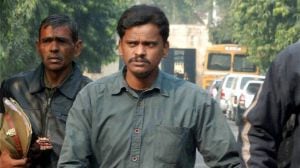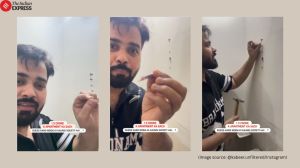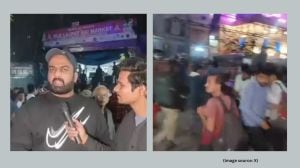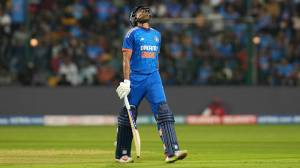Why Salem won’t recognise the Mumbai he fled
When he came from Azamgarh in Uttar Pradesh, Mumbai was like Chicago in the 1930s: Bloody mafia feuds were the order of the day, the police ...

When he came from Azamgarh in Uttar Pradesh, Mumbai was like Chicago in the 1930s: Bloody mafia feuds were the order of the day, the police and customs paid off, the honest ones ceaselessly scanning the coastline for dhows weighed down with clandestine gold and silver.
But on his second coming, extradited after an extended stay with law enforcers in Portugal, Abu Salem won’t find the Bombay he knew.
Salem fled Mumbai after the March 12, ‘93 serial bombings. But it was in 1997 he became a household name, after music magnate Gulshan Kumar was killed.
Mumbai in the ’70s was gangster’s paradise—Haji Mastan, Yusuf Patel, Karim Lala, Alamzeb and Amirzada fought over the pickings from dockyard smuggling. Others diversified into extortion, drugs and gun-running. But Salem was never a front-runner. Bombing kingpins Mushtaq ‘Tiger’ Memon, Mohammed ‘Mustafa’ Dossa and Dawood Ibrahim were ahead in the smuggling racket too, the police say; Salem was a hanger-on.
Salem came to Mumbai in the late ’80s, first playing chauffeur to Congress power-broker Romesh Sharma. But with help from his cousin Akhtar — a small-time criminal, he slowly began extorting money and manipulating land deals. He also came in contact with Anees Ibrahim, Dawood Ibrahim’s younger brother.
Anees’s assistance came in handy when he allegedly entered hawala operations, working from Santa cruz. Salem, say investigators, continued his hawala trade, but extortion soon became his speciality. He hobnobbed with producers and film-makers, and when Bollywood became the favoured route for money laundering in the late 1980s, he met several shady film-makers.
One of them was Mukesh Duggal—his only release was Platform—who was later killed by Chhota Rajan’s men. It was Duggal who introduced the married Salem to then aspiring actress Monica Bedi.
After the ‘93 bombings and the June 1993 murder of BJP MLA Prem Kumar Sharma, he escaped to Dubai. He allegedly got T-Series owner Gulshan Kumar murdered in 1997 and had Manisha Koirala’s secretary killed and . ordered Rajesh Roshan fired at. Meanwhile, in Mumbai, a troubled team of senior policemen were chalking out a strategy. The encounter specialists were born. Over the next few years, over 600 gangsters were to be killed in encounters, then charged under the Maharashtra Control of Organised Crime Act, 1999, and the Maharashtra Prevention of Disruptive Activities Act, 1981.
In early 2001, after a tiff with gangster Chhota Shakeel, Salem left Dubai, giving up Dawood’s Bollywood lieutenantship. Factionalism and infighting split the Rajan gang too. What was left was finished by the Dawood-Rajan feud.
Salem was flitting listlessly from one continent to another when 9/11 skewed the equation further. With stringent checking at airports, he got caught.



- 01
- 02
- 03
- 04
- 05




























